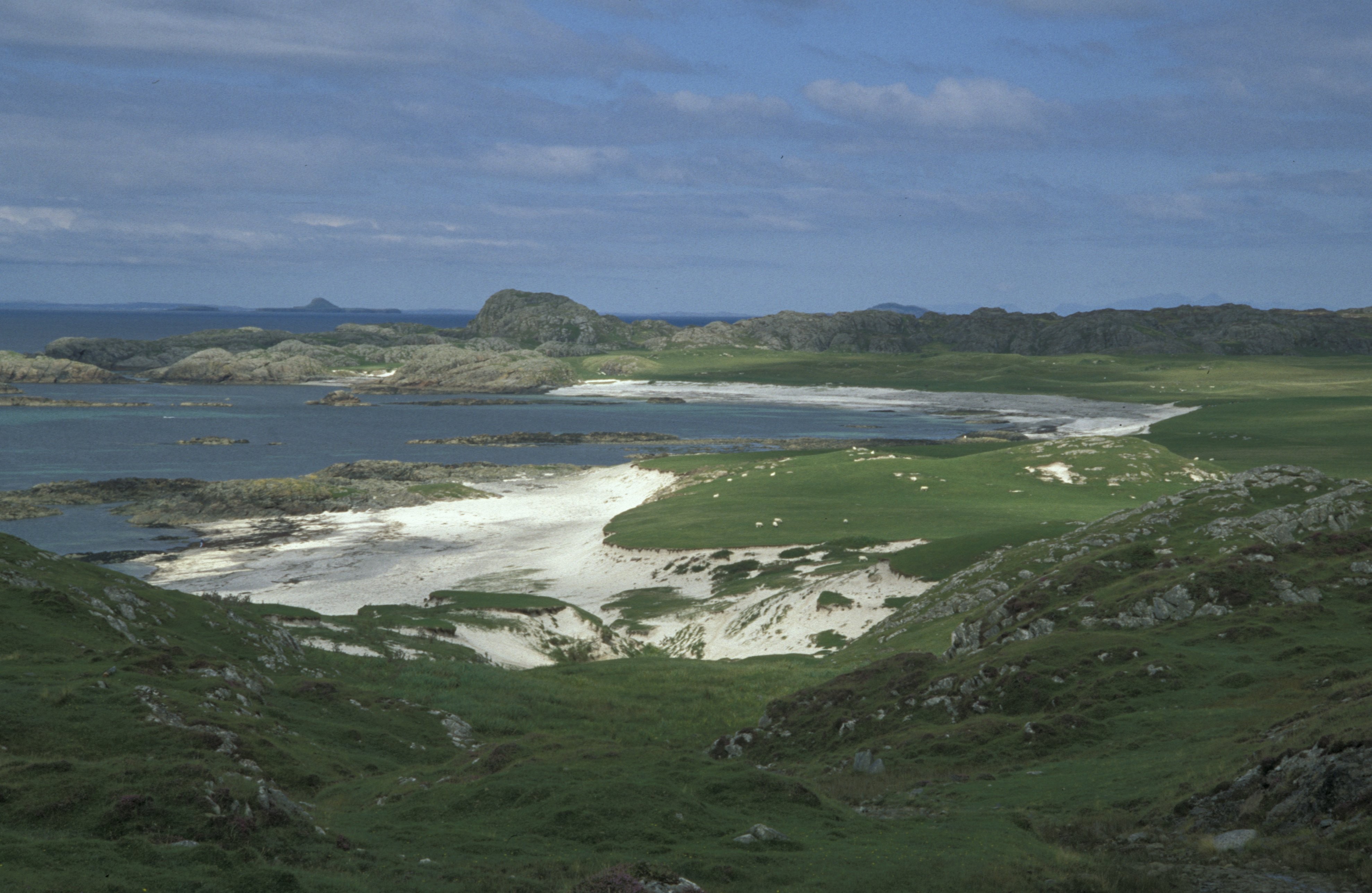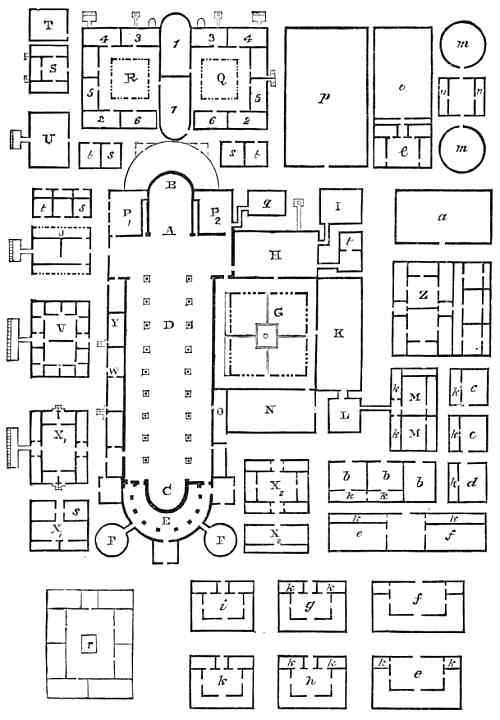|
Clann-an-oistir
The 'Clann-an-oistir' (from the Latin ) were the doorkeepers to the monastery of Iona. The first of the family came over from Ireland with Colum Cille, but when they caused the displeasure of that saint, he invoked a curse on them, by which it was decreed that never more than five of his clan should exist at the same time. Accordingly, when a sixth was born, one of the five was to look for death, which always happened until the race was extinguished. A female who died about the middle of the 18th century in Iona was the last person who could trace a lineage to the doorkeepers of this monastery. References * (Clann-an-oistir) See also * Hostarius (Scotland) The Hostarius (alternatively, Usher, Doorward or Durward) was an office in medieval Scotland. Its holders who eventually became hereditary, had the theoretical responsibility of guarding the king's door, thereby protecting the king's property. Thi ... Scottish folklore Iona {{scotland-hist-stub ... [...More Info...] [...Related Items...] OR: [Wikipedia] [Google] [Baidu] |
Hostarius (Scotland)
The Hostarius (alternatively, Usher, Doorward or Durward) was an office in medieval Scotland. Its holders who eventually became hereditary, had the theoretical responsibility of guarding the king's door, thereby protecting the king's property. This is a list of ''hostarii''. * Malcolm de Molle, uncle of Alan fitz Walter, 2nd High Steward of ScotlandBalfour Paul vol.I p. 11 * Jocelin, reign of William the Lion * Thomas de Lundin (son of Máel Coluim son of Gille Críst, Earl of Mar), d. 1231 * Alan Durward (son of Thomas), d. 1275 The family of "Durward" (a later name for ''hostarius'') may have held the office hereditarily after Thomas of Lundie, and certainly kept the title as a surname (in Norman French, ''l'Ussier'' ("the Usher"); in English, ''Durward''). However, by the second half of the 13th century, the office was no longer hereditary. This led to many individuals serve as ''hostarii'' during this period. Unlike many other hereditary royal office holders, the "Durward" f ... [...More Info...] [...Related Items...] OR: [Wikipedia] [Google] [Baidu] |
Iona
Iona (; , sometimes simply ''Ì'') is an island in the Inner Hebrides, off the Ross of Mull on the western coast of Scotland. It is mainly known for Iona Abbey, though there are other buildings on the island. Iona Abbey was a centre of Gaelic monasticism for three centuries and is today known for its relative tranquility and natural environment. It is a tourist destination and a place for spiritual retreats. Its modern Scottish Gaelic name means "Iona of (Saint) Columba" (formerly anglicised as "Icolmkill"). In 2019, Iona's estimated population was 120. In March 1980, the Hugh Fraser Foundation donated much of the main island (and its off-lying islands) to the current owner, the National Trust for Scotland. The abbey and some church buildings are owned by the Iona Cathedral Trust. One publication, describing the religious significance of the island, says that the island is "known as the birthplace of Celtic Christianity in Scotland,” and notes that “St Columba came here ... [...More Info...] [...Related Items...] OR: [Wikipedia] [Google] [Baidu] |
Latin Language
Latin ( or ) is a classical language belonging to the Italic languages, Italic branch of the Indo-European languages. Latin was originally spoken by the Latins (Italic tribe), Latins in Latium (now known as Lazio), the lower Tiber area around Rome, Italy. Through the expansion of the Roman Republic, it became the dominant language in the Italian Peninsula and subsequently throughout the Roman Empire. It has greatly influenced many languages, Latin influence in English, including English, having contributed List of Latin words with English derivatives, many words to the English lexicon, particularly after the Christianity in Anglo-Saxon England, Christianization of the Anglo-Saxons and the Norman Conquest. Latin Root (linguistics), roots appear frequently in the technical vocabulary used by fields such as theology, List of Latin and Greek words commonly used in systematic names, the sciences, List of medical roots, suffixes and prefixes, medicine, and List of Latin legal terms ... [...More Info...] [...Related Items...] OR: [Wikipedia] [Google] [Baidu] |
Monastery
A monastery is a building or complex of buildings comprising the domestic quarters and workplaces of Monasticism, monastics, monks or nuns, whether living in Cenobitic monasticism, communities or alone (hermits). A monastery generally includes a place reserved for prayer which may be a chapel, Church (building), church, or temple, and may also serve as an Oratory (worship), oratory, or in the case of Cenobium, communities anything from a single building housing only one senior and two or three junior monks or nuns, to vast complexes and estates housing tens or hundreds. A monastery complex typically comprises a number of buildings which include a church, dormitory, cloister, refectory, library, Wiktionary:balneary, balneary and Hospital, infirmary and outlying Monastic grange, granges. Depending on the location, the monastic order and the occupation of its inhabitants, the complex may also include a wide range of buildings that facilitate self-sufficiency and service to the commun ... [...More Info...] [...Related Items...] OR: [Wikipedia] [Google] [Baidu] |
Ireland
Ireland (, ; ; Ulster Scots dialect, Ulster-Scots: ) is an island in the North Atlantic Ocean, in Northwestern Europe. Geopolitically, the island is divided between the Republic of Ireland (officially Names of the Irish state, named Irelanda sovereign state covering five-sixths of the island) and Northern Ireland (part of the United Kingdomcovering the remaining sixth). It is separated from Great Britain to its east by the North Channel (Great Britain and Ireland), North Channel, the Irish Sea, and St George's Channel. Ireland is the List of islands of the British Isles, second-largest island of the British Isles, the List of European islands by area, third-largest in Europe, and the List of islands by area, twentieth-largest in the world. As of 2022, the Irish population analysis, population of the entire island is just over 7 million, with 5.1 million in the Republic of Ireland and 1.9 million in Northern Ireland, ranking it the List of European islands by population, ... [...More Info...] [...Related Items...] OR: [Wikipedia] [Google] [Baidu] |
Columba
Columba () or Colmcille (7 December 521 – 9 June 597 AD) was an Irish abbot and missionary evangelist credited with spreading Christianity in what is today Scotland at the start of the Hiberno-Scottish mission. He founded the important abbey on Iona, which became a dominant religious and political institution in the region for centuries. He is the patron saint of Derry. He was highly regarded by both the Gaels of Dál Riata and the Picts, and is remembered today as a Catholic saint and one of the Twelve Apostles of Ireland. Columba studied under some of Ireland's most prominent church figures and founded several monasteries in the country. Around 563 AD he and his twelve companions crossed to Dunaverty near Southend, Argyll, in Kintyre before settling in Iona in Scotland, then part of the Ulster kingdom of Dál Riata, where they founded a new abbey as a base for spreading Celtic Christianity among the pagan Northern Pictish kingdoms. He remained active in Irish politics ... [...More Info...] [...Related Items...] OR: [Wikipedia] [Google] [Baidu] |
Clan
A clan is a group of people united by actual or perceived kinship and descent. Even if lineage details are unknown, a clan may claim descent from a founding member or apical ancestor who serves as a symbol of the clan's unity. Many societies' exogamy rules are on a clan basis, where all members of one's own clan, or the clans of both parents or even grandparents, are excluded from marriage as incest. Clans preceded more centralized forms of community organization and government, and have existed in every country. Members may identify with a coat of arms or other symbol. Etymology The word "clan" is derived from the Gaelic word meaning "children", "offspring", "progeny" or "descendants". According to the ''Oxford English Dictionary'', the word "clan" was introduced into English in around 1406, as a descriptive label for the organization of society in Ireland and the Scottish Highlands. None of the Irish and Scottish Gaelic terms for kinship groups is cognate to English ... [...More Info...] [...Related Items...] OR: [Wikipedia] [Google] [Baidu] |
Scottish Folklore
Scottish folklore (Scottish Gaelic: ''Beul-aithris na h-Alba'') encompasses the folklore of the Scottish people from their earliest records until today. Folkloristics, Folklorists, both academic and amateur, have published a variety of works focused specifically on the area over the years.Sanderson (1957: 457-466). Some creatures of Scottish folklore are Loch Ness Monster, brownie (folklore), brownies, bogles, kelpies, selkies, wulver, the wulver, bean-nighe, the bean-nighe, and Blue men of the Minch, the blue men of the Minch. See also * Cornish mythology * English folklore * Matter of Britain * Welsh folklore * Welsh mythology * Scottish mythology Notes References * External links * Scottish folklore, {{Folklore-stub ... [...More Info...] [...Related Items...] OR: [Wikipedia] [Google] [Baidu] |




